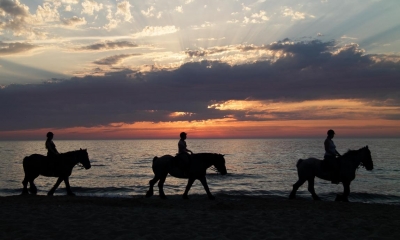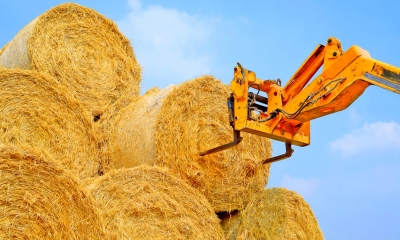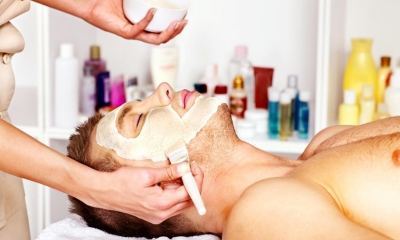
Some of the key areas where legislation is likely to affect your business are listed below.
What licences does a pony trekking business need?
Regulations made under the Animal Welfare Act consolidated and updated animal welfare requirements. The licensing requirement under the Regulations replaced the requirement to obtain a licence under the Riding Establishments Act 1964, although any unexpired licences granted under earlier Riding Establishments Acts continue in force until they expire. Under the Regulations, a licence is required for any business which keeps horses:
- to hire out for riding, and/or
- for use in providing instruction in riding for payment
The licence is issued by the local authority which will only grant it if you comply with certain minimum standards. A vet will visit your premises to make sure that the horses are properly housed, fed and looked after. The licence must be renewed annually. You will have to show that you are suitably qualified and have experience of horse management. Your horses must be:
- in good health and physically fit
- suitable for hiring out for riding
- given adequate food, drink and bedding
- exercised regularly
- safeguarded in an emergency
You'll have to have insurance covering you for any injuries which occur when people are riding your horses and you must keep a register of all horses kept on your premises which are under three years old. The register must be available for inspection.
You won't be able to get a licence if you have been banned from running a riding establishment and you'll need to check with your local authority whether they will grant you one if you have been convicted of an animal welfare offence.
Adventure Activities Licensing Regulations
If you offer pony trekking to young people under the age of 18 who are not accompanied by their parent or legally appointed guardian then your centre will need to be licensed. Contact the Adventure Activities Licensing Service (AALS) for details.
Safeguarding vulnerable groups
Employers should make sure that volunteers and employees are suitable to work with children and vulnerable adults. The British Horse Society (BHS) processes disclosure checks with the Disclosure and Barring Service, Disclosure Scotland and Access NI to help identify people who may be unsuitable.
Visit the BHS website for more information and for details of the BHS Safeguarding and Protecting Children Course.
You can read about safeguarding children, young adults and vulnerable people on the British Equestrian Federation (BEF) website and download the Safeguarding Equestrian Sport documentation.
You should also be aware that businesses which keep records of individuals' personal details may need to register as data users with the Information Commissioner's Office (ICO). From May 2018 the General Data Protection Regulation has introduced additional protection for personal data.
Riding Establishments Act
Businesses which hire out horses for riding and/or charge for riding lessons must obtain a licence from their local authority. A licence will only be granted if certain minimum conditions have been met. A vet will inspect the riding centre to check that the required standards are being observed. The licence must be renewed each year and the licence holder must have current public liability cover.
The Act also requires a business to only hire out "suitable" horses - that is, over three years old, not in foal nor recently foaled, physically fit and healthy.
Welfare and protection of animals
Because you will be responsible for the health and welfare of the animals in your charge you must make sure that you are aware of the legislation regulating the keeping of horses and ponies. The main pieces of legislation of relevance are:
- the Welfare of Farmed Animals Regulations (although these apply specifically to horses and ponies raised for food production, all owners or keepers would be expected to maintain standards to at least those specified)
- the Animal Welfare Act (in England and Wales)
- the Animal Health and Welfare Act (Scotland)
- the Welfare of Animals Act (Northern Ireland)
- the Welfare of Animals (Transport) Order - anyone transporting animals as part of a business must be authorised as an animal transporter. For long journeys (over eight hours), vehicles must have been inspected and approved. Drivers or attendants responsible for transporting animals more than 65km are required to hold a certificate of competence)
The Animal Welfare Act, which was implemented in November 2006, brought together and updated existing animal welfare legislation applying in England and Wales. Secondary legislation made under the Animal Welfare Act updated the licensing regime for riding establishments. It consolidated and updated animal welfare requirements in one consistent licensing scheme, streamlining the licence application process and the inspection and enforcement procedures. The regulations made the application process consistent across the country and reduced the burden on local authorities and businesses.
You can download the National Equine Welfare Council (NEWC) publication Equine Industry Welfare Guidelines Compendium for Horses, Ponies and Donkeys from the NEWC website. This contains detailed guidance on the minimum standards of care required to look after horses appropriately, including legal requirements.
Contact the British Horse Society for details of numerous publications relating to the welfare of your horses.
Adventure Activities Licensing Regulations
If you offer pony trekking to young people under the age of 18 who are not accompanied by their parent or legally appointed guardian then your centre will need to be licensed. Contact the Adventure Activities Licensing Service (AALS) for details.
Disposal of horse waste
Horse manure is what is referred to as 'controlled waste' and you will need to comply with environmental regulations when you dispose of it. You will also need to make sure that run-off from your yard, manure heaps or stable washing doesn't cause pollution. If you store horse manure for more than 12 months you'll need an environmental permit. You can read pollution prevention and environmental management guidelines on the Gov.uk website.
Other equine matters
You should be aware that it is a legal requirement for children under 14 years of age to wear a riding hat when riding on the road. The hat must comply with current British standards.
You should make sure that all tack is kept in a state of good repair.
All horses, ponies and donkeys must be registered and have a 'passport'. The passport must be produced when a horse moves premises, enters competitions, is used for breeding, leaves the UK, is sold or slaughtered. Foals must have a microchip implanted by a vet when their owners apply for a passport. The Gov.uk website contains more information.
Food safety
If your business will be involved in food preparation (for example, because you provide catered residential accommodation) you must be aware of relevant food safety legislation.
Accommodation
Depending on the number of letting bedrooms you will have you may have to comply with hotel legislation. You can read guidance notes on a range of different topics of relevance to accommodation providers on the Trading Standards Business Companion website. Information is also available from your local authority Trading Standards Department.
Health & Safety, fire
You must comply with workplace health and safety and fire safety legislation. Under the Reporting of Injuries, Diseases and Dangerous Occurances Regulations (RIDDOR) you must report any major accidents and injuries and also keep a record of them. You should contact your local authority health and safety section for advice and guidance.
Further information and guidance leaflets on all aspects of health and safety are available on the Health and Safety Executive (HSE) and Health and Safety Executive Northern Ireland (HSENI) websites.
Employment legislation
Anyone employing staff must comply with employment legislation. Important areas of legislation include recruitment, employment contracts, pay, working hours, holidays, employment policies, sickness, maternity, paternity, discrimination, discipline, grievances, dismissals, redundancies and employment tribunals.
Insurance for a pony trekking business
Contact an insurer or insurance broker and explain exactly how your business will operate - they will then explain what insurance cover you must have by law, and other cover you should consider. This might include:
- horses and ponies
- premises, premises contents (including tack/saddlery) and feedstuffs
- cash
- business interruption
- employer's liability
- public liability. (The 1970 Riding Establishments Act specifies that the licence holder must have current public liability insurance.)
- personal accident
- motor insurance (for vehicles)
- horsebox cover
You should make clear in your terms that riders should take out their own personal accident insurance.
The British Horse Society (BHS) can give guidance on insurance matters. All BHS Approved Establishments are eligible for discounts on insurance arranged through a preferred insurer.



